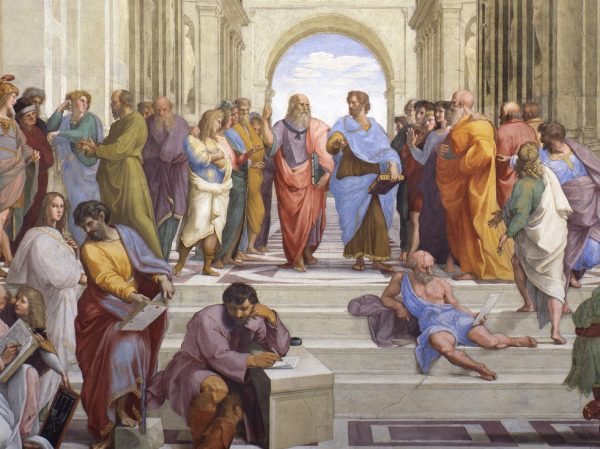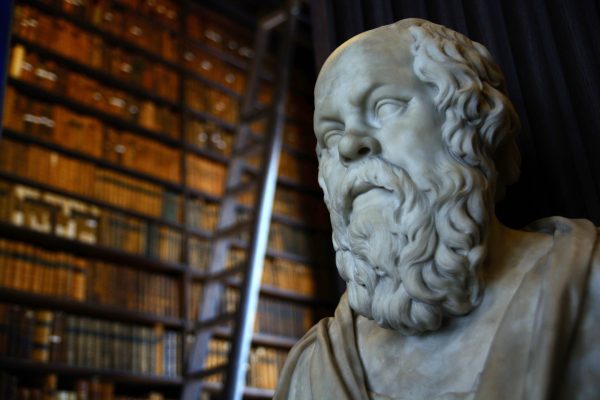When God recedes, nihilism takes His place.
Big Sort U.

There’s a path for colleges to flourish under current conditions, but few leaders see it.
Grove City College in Pennsylvania was a proud dissident from the liberal consensus a long time before being so was en vogue. Decades ago, its leaders decided to forego all federal funding in order to maintain their independence, and the school boasts a committed pipeline of talented students, a stable full of rockstar conservative brains, and a name in the marketplace that singles out its graduates as capable and well-trained thinkers.
There are few institutions of higher learning that are better situated to confront the challenges that Critical Race Theory and other radical ideologies pose to traditional values than Grove City College. But is Grove City ready to take up this opportunity, or is it succumbing to the same pressures of wokeness that have already rotted out colleges around the country?
There’s no question that the administration of Grove City College has already permitted pernicious, cultural Marxist theories to establish a foothold on the campus. In the fall of 2020, following destructive nationwide riots, Grove City instituted a Council on Diversity and a series of activist-inflected chapel speeches, including a guest appearance by the author and activist Jemar Tisby, who now works with Ibram X. Kendi’s organization. Credible reports exist of CRT being pushed in residential advisor trainings and other student life programming (e.g., an officially sponsored and advertised student viewing of MTV’s documentary White People, which is as subtle as it sounds). The administration approved an education class whose list of required textbooks was comprised solely of activist works like White Fragility and How to be an Anti-Racist, which is being advertised in posters bearing the clenched fist symbol for Black power and promises to teach students how to be actively anti-racist. And Grove City has failed to consistently enforce (or hold its instructors accountable to) the institution’s stated commitments to historic Christian views of sexuality.
The weight of the evidence does not establish that Grove City is, overall, “woke,” but it undermines Grove City’s President Paul McNulty’s recent claim that critical theory “has no intellectual home at Grove City College.” It is demonstrably the case that Grove City has taken significant steps toward welcoming the same divisive and intellectually corrupt discourse that is roiling campuses around the country,
A petition regarding these concerns was sidestepped by the administration. In response to a piece I wrote in American Reformer about this issue, Carl Trueman, Grove City’s most prominent conservative faculty member and a fellow at the Ethics and Public Policy Center, fired back with a strawman attack against my argument. Trueman—a true scholar whom I have long admired and whose book The Rise and the Triumph of the Modern Self is seminal—dodged the assertion that CRT has found a home at Grove City, instead choosing to address the unasserted premise that Grove City is entirely a woke institution, citing his own scholarly output and classroom presence as evidence against CRT’s emergence at Grove City. In other words, “How could Grove City be going woke, when I am free to speak my mind here?” Trueman concludes his piece with gratitude for the fact that “I and my colleagues work at a place where we have the freedom to be faithful in our callings, a freedom that exists in few other institutions of higher education today.”
The statement is of course true as far as it goes. Yet, as Trueman himself likely agrees, academic freedom is not a sufficient bulwark against the viral ideologies that have subjugated the secular academy. Robert George’s labors at Princeton, salutary as they are, haven’t spared the university from the corruption wrought by woke ideology. And a quick stroll through the birthplaces of the Free Speech Movement (e.g., UC Berkeley, Yale) makes clear that institutions need much stronger footings – comprehensively implementing substantive commitments to the good, the true, and the beautiful properly understood – if they expect to withstand the cultural revolution.
According to its official bulletin:
Grove City College remains true to the vision of its founders. Rejecting relativism and secularism, it fosters intellectual, moral, spiritual, and social development consistent with a commitment to Christian truth, morals, and freedom… The ethical absolutes of the Ten Commandments and Christ’s moral teachings guide the effort to develop intellect and character in the classroom, chapel, and co-curricular activities.
It is evident from the face of his public writings that Trueman has these commitments close to heart. And we can be sure his students are well-served in the classroom. But the question raised by the CRT petitioners is an institutional one, not addressed to Grove City’s faculty members (some of whom are less exemplary than Trueman) but rather to its administration. The CRT petitioners seek to hold Grove City’s administration to the standards that the college uses to market itself to students and parents. They are highlighting their expectations regarding not just what Grove City offers in the classroom, but also what it chooses to platform in its chapel program and imbed throughout its student life offerings.
On the other side of Lake Erie, Hillsdale College, is enjoying the status that comes from being a magnet for cadres of smart dissident types who want to help build an institution they believe in, and don’t give a fig about mainstream academic types who aren’t on board. In 2021, the college took in a record high number of freshmen, while simultaneously boasting a record low admission rate of 23 percent. Hillsdale’s incoming class has an average GPA of 3.93 and an average ACT score of 32, numbers that rival Ivy League schools. Hillsdale’s endowment now reportedly exceeds $900 million, which works out to an astonishing $600,000 per student. Hillsdale was one of only 38 institutions to receive a financial health score of A+ from Forbes, a rating that is especially impressive given that Hillsdale takes no federal funding.
Hillsdale’s success demonstrates the market opportunities for conservative institutions with foresight. A college with Grove City’s institutional legacy should be poised to capitalize on these conditions, but a rehab is needed. Initial fixes would involve little more than renewing loyalty to Grove City’s core constituency and boldly recommitting to its legacy. Such steps would cement the school’s traditional identity and prevent woke mission creep. Academic leadership should stock Grove City’s faculty full of public intellectuals like Trueman, and implement a unified and unabashed conservative vision across Grove City’s chapel and student life programming—a vision to transform Grove City into a beacon that attracts aligned conservative Christian students and faculty from around the country.
Colleges and universities are facing a critical moment. Higher ed commentary is abuzz with talk of the impending “demographic cliff,” i.e., the enrollment repercussions of the permanent drop in fertility rates following the Great Recession. But subtler challenges lurk in the background. The economic proposition of a college degree is called into question by ever-rising tuition costs coupled with stagnant wage growth. Given radical ideological capture, large swaths of the public have grown skeptical of sham academic wisdom. And perhaps the last best argument for the utility of a college degree—the extent to which colleges serve as professional gatekeepers or credentialing authorities—has become imperiled by the mainstream academy’s headlong embrace of hierarchy based on victim status rather than merit.
Christian institutions of higher education face additional challenges. Those that retain stated commitments to traditional Christian identity will win the loyalty of their constituents but will face mounting social pressure as well as political threats to their federal funding sources, accreditation status, and the employment prospects of their graduates. Those that drift from their historical moorings – as Nate Fischer warned in these pages last year with respect to Calvin University – will have little hope of competing, adrift in an ocean of undifferentiated small liberal arts colleges, when local public universities offer comparable employment outcomes at a fraction of the price.
Amid these challenges, there’s a significant first mover advantage for forward-thinking colleges that follow the right playbook. The donor cheques would write themselves. The playbook doesn’t need to be very complicated. It would include, in broad strokes, goals like the following:
- Adopt a stripped-down core mission with a focus on formation of virtuous character and instilling critical thinking ability. Correspondingly, improve affordability by streamlining administrative functions (starting with those functions that have net negative impacts on the core mission);
- Cultivate alternative employment pipelines for graduates with businesses that value the type of credentialing the institution is uniquely situated to provide;
- Capitalize on dissatisfaction with the wider academy by hiring talented and independent faculty looking for a refuge from the academic mainstream;
- Achieve independence, both financially (wean off federal funds, implement cost structures that buffer market turbulence) and intellectually (create owned space for knowledge creation that is untethered from broader academic fads).
The opportunities in running this playbook are not purely speculative. They have already been demonstrated. Earlier this fall, a lengthy feature in the Detroit Free Press highlighted the competitive advantages for more distinctively Christian institutions. Philosophy Professor David Talcott recently catalogued in a twitter thread the astonishing success of a handful of colleges like Hillsdale, Cedarville, and New Saint Andrews that “understand the times are changing.”
Almost nobody is as well positioned as Grove City to run this playbook. Indeed, farsighted leaders put them on the path decades ago. Fortune will favor those with the acuity and vision to set the right course in these uncharted waters.
The American Mind presents a range of perspectives. Views are writers’ own and do not necessarily represent those of The Claremont Institute.
The American Mind is a publication of the Claremont Institute, a non-profit 501(c)(3) organization, dedicated to restoring the principles of the American Founding to their rightful, preeminent authority in our national life. Interested in supporting our work? Gifts to the Claremont Institute are tax-deductible.
Cause of death: Twitter mobs.
an invitation to noncompliance.



